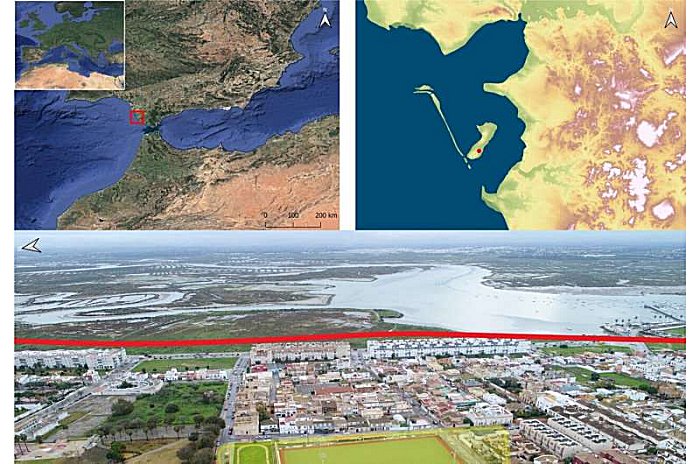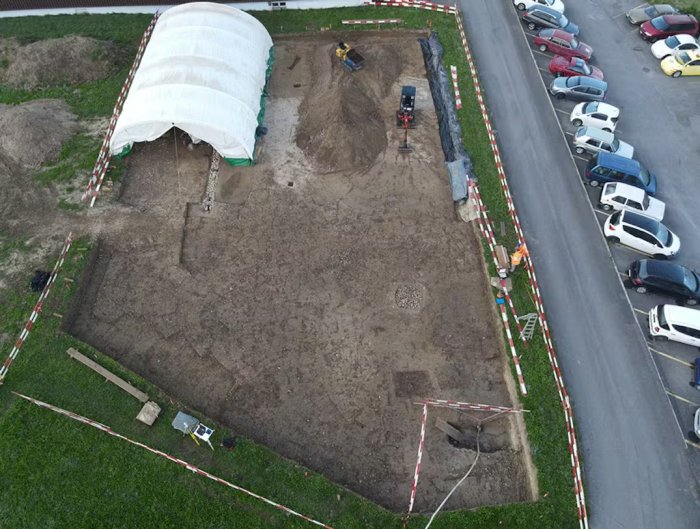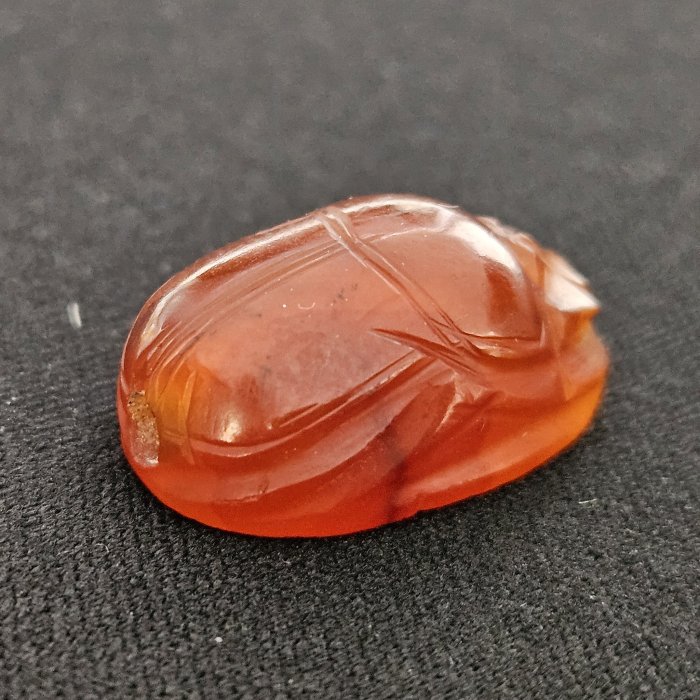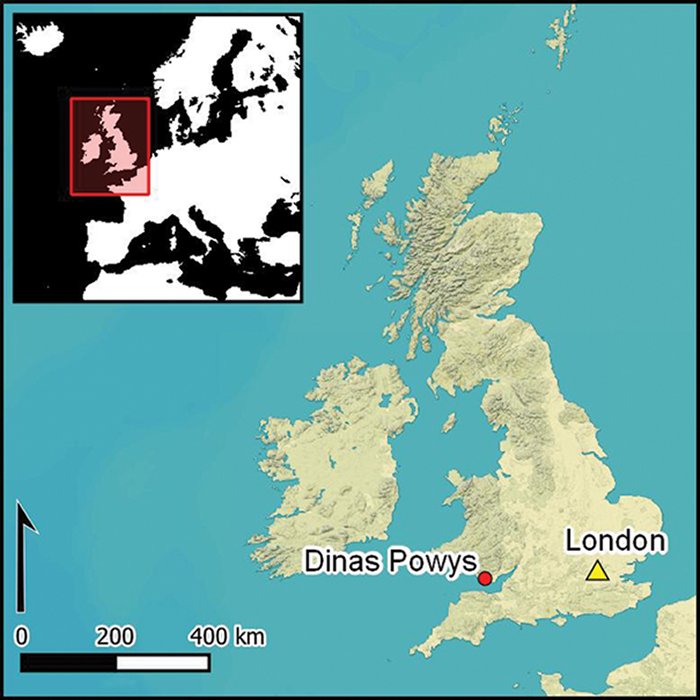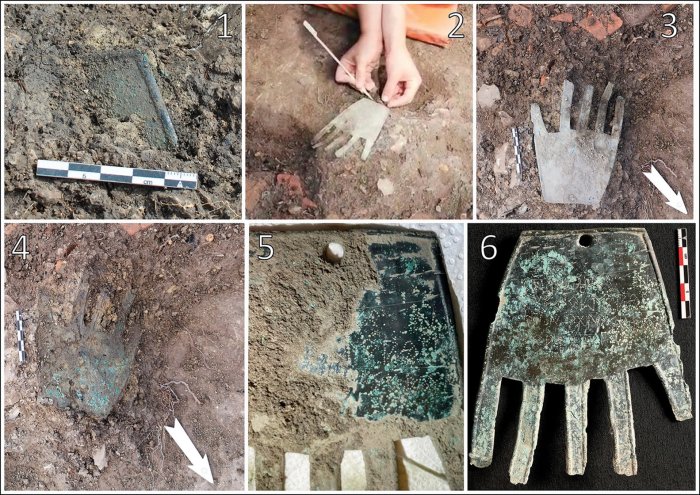Conny Waters – AncientPages.com – A previously unknown Crusades-era bird pendant found in Lappajärvi in the 1960s is now in the collection of the Finnish Heritage Agency.
The late Iron Age pendant was initially found in a cow pasture in Lappajärvi in the South Ostrobothnia region in the 1960s.
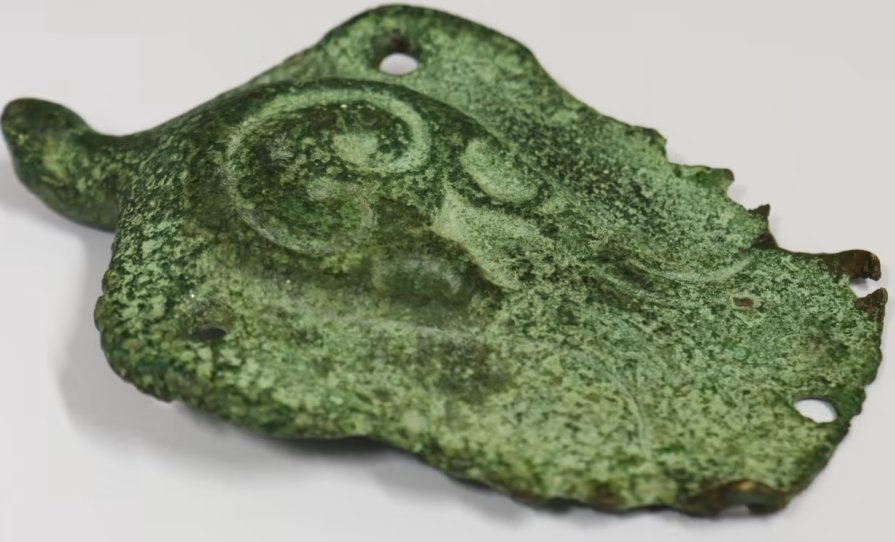
The thousand-year-old copper-alloy ornament depicts a capercaillie with folded wings.
The holes were likely for attaching decorative pieces representing the birds legs. Image: Seinäjoen museo
For decades the piece had remained in possession of its finder, who didn’t fully realize its historical significance.
“A team of archaeologists was doing research at Nykälänniemi in Lappajärvi last year. The finder of the pendant happened to talk with them and was advised that it would be worthwhile contacting the Seinäjoki Museum about it”, explains Janne Rantanen, an archaeologist at the Seinäjoki Museum.
Rantanen added that the finder had some sense of the object’s importance, as it had been well preserved for decades.
“I was really surprised when I got the ornament in my hands. And, of course, I was really excited that such a rare object could be found,” says Rantanen.
Only one other known
A piece called the Uhtua pendant, in the form of a diving duck, was discovered in Karelia in 1893. It went through several private hands before ending up in what then was Finland’s National Museum in 1927. Only a single similar pendant from the period is known.
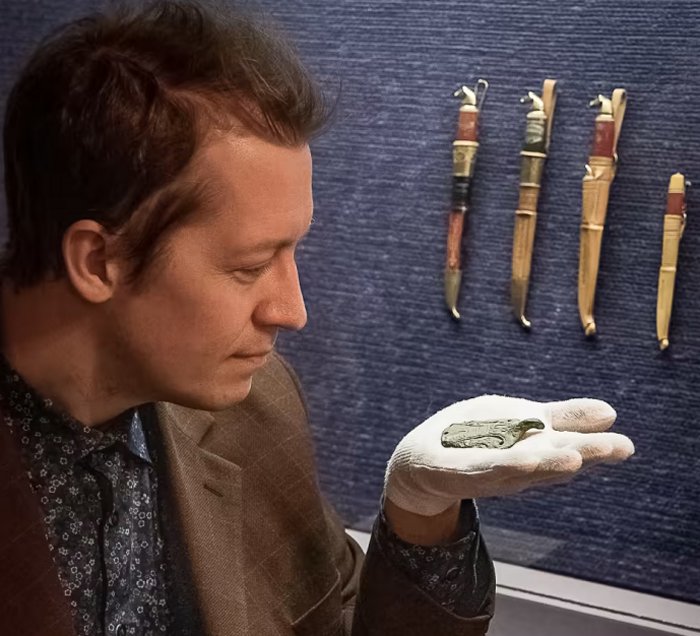
Archaeologist Janne Rantanen says he was surprised when he got his hands on the jewelry. He said the piece was stored carefully since its discovery in the 60s. Image: Minna Heinonen, Seinäjoen museot
The ornament found in Lappajärvi depicts a capercaillie with folded wings. It is made of copper alloy. The holes were likely for attaching decorative pieces representing the bird’s legs.
While mainly copper, Janne Rantanen believes that the mixture may contain, for example, lead.
Both pendants were women’s jewelry, made sometime between 1000–1200 CE.
Rantanen points out that this latest discovery is also scientifically significant as it sheds light on the settlement history of the South Ostrobothnia, where late Iron Age remains are particularly scarce.
So far, no dwelling or burial sites dating back to the late Iron Age have been found in the area around Lappajärvi. However, this pendant and the handle of a Crusade-era, Karelian-style so-called woman’s knife found close by a few years ago in Alajärvi can be interpreted as evidence of permanent settlement in the area.
The Lappajärvi bird pendant has been turned over to the Finnish Heritage Agency to be added to the national archaeological collection.
Written by Conny Waters – AncientPages.com Staff Writer
